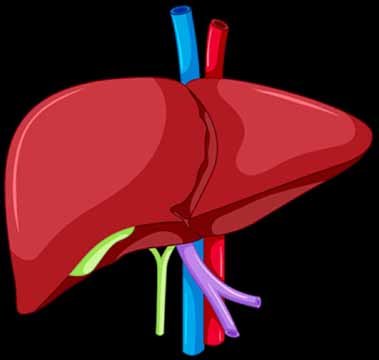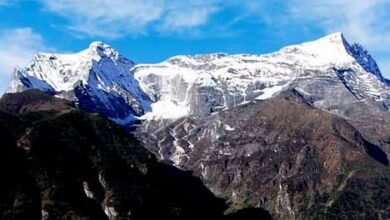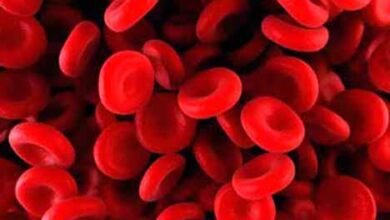
जन्तु विज्ञान से संबंधित-129.
| 1. कोशिका की खोज किसने की थी? = अंग्रेज वैज्ञानिक राबर्ट हुक.
2. बैक्ट्रिया की खोज किसने की थी? = ल्यूवेन्हॉक. 3. रक्त समूह ( Blood Group ) एवं आर एच तत्व( RH Factor ) की खोज किसने की थी? = कार्ल लैंडस्टीनर. 4. रक्त परिसंचरण की खोज किसने की थी? = विलियम हार्वे. 5. रूधिर वर्गों (रक्त समूह) की खोज किसने की थी? = लैंडस्टीनर. 6. DNA का डबल हेलिक्स मॉडल किसने दिया था? = क्रिक और वाटसन. 7. ‘प्रोटीन की फैक्ट्री’ किसे कहा जाता है? = राइबोसोम. 8. कोशिका का पावर हाउस किसे कहा जाता है? = माइटोकांड्रिया. 9. RBC लाल रक्त कण की कब्रगाह किसे कहा जाता है? = यकृत और प्लीहा. 10. रक्त का थक्का बनाने में कौन विटामिन सहायक होता है? = विटामिन के (K). 11. शरीर के विकास के लिए अत्यंत आवश्यक होता है? = प्रोटीन. 12. कौन रोगों से शरीर की रक्षा करता है? = श्वेत रक्तकण. 13. सबसे लम्बी कोशिका होती है? = तंत्रिका कोशिका (न्यूरोन सेल). 14. मास्टर ग्रंथि किसे कहते है? = पीयूष ग्रंथि. 15. थाईरॉइड ग्रंथियों के काम को नियंत्रित करने के लिए आवश्यक होता है? = आयोडीन. 16. टीनिया सोलियम (फीता कृमि) कहाँ पाया जाता है? = सूअर और मानव की आंत. 17. हड्डी का प्रयोग किस उर्वरक के रूप में किया जाता है? = फास्फोरस. 18. लार में कौन सा एन्जाइम पाए जाता है? = टायलीन और माल्टोज. 19. उत्तेजना के समय कौन सा हार्मोन अधिक मात्रा में उत्सर्जित होता है? = एड्रीनलीन हार्मोन. 20. कोशिकभित्ति का मुख्य घटक होता है? = सेलुलोज. 21. एक आनुवांशिक रोग है जो रुधिर को प्रभावित करता है? = थैलासीमिया. 22. खून में किसके द्वारा ऑक्सीजन की आपूर्ति होती है? = हीमोग्लोबिन. 23. मानव शरीर में सबसे ज्यादा मात्रा में पाये जाने वाला तत्व होता है? = ऑक्सीजन. 24. रक्त में प्लाज्मा का आयतन कितना होता है? = 60%. 25. मानव हृदय में कक्षों की कितनी संख्या होती है? = चार (04). 26. मूत्र का असामान्य घटक होता है? = एल्ब्युमिन. 27. गठिया रोग का कारण है? = जोड़ों में यूरिक एसिड क्रिस्टलों का इकट्ठा होना है. 28. फ्लोरीन का सम्बन्ध होता है? = दातों की विकृति. 29. मानव में गुर्दे का रोग किसके प्रदुषण से होता है? = कैडमियम. 30. मानव शरीर में प्रेालैकिटन हार्मोन का निर्माण कहाँ होता है? = अण्डाश्य. 31. मनुष्य के मष्तिशक के जिस भाग में स्मृति रहती है उसे? = प्रमसितश्क प्रान्तस्था (कार्टेक्स). 32. सोमेटोट्रोफिक हार्मोन किसके द्वारा स्त्रावित होते है? = पीयूष ग्रन्थि. 33. टेस्टोस्टीरोन हार्मोन किसके द्वारा स्त्रावित होते है? = वृषण ग्रन्थि. 34. एस्ट्रोजन हार्मोन किसके द्वारा स्त्रावित होते है? = डिम्ब ग्रन्थि. 35. थायराक्सीन ग्रन्थि किसके द्वारा स्त्रावित होते है? = थायराइड ग्रनिथ. 36. किसे आपातकालीन ग्रन्थि कहा जाता है? = एडि्रनल ग्रनिथ. 37. रक्त ग्लूकोज स्तर सामान्यतः भाग में व्यक्त किया जाता है? = प्रतिमिलियन. 38. आँख का वह भाग जिसमें वर्णांक होल होता है तथा जो किसी व्यकित की आँखों का रंग निशिचत करता है उसे? = आइरिस. 39. शरीर के रोग प्रतिरोधन में किस ऊतक का बडा महत्व होता है? = लिम्फायड ऊतक. 40. यकृत पित्त का स्त्रवण करता है जो पाचन में मदद करता है? = वसा. 41. मानव शरीर में नये ऊतकेा की वृध्दि के लिये कौन पोषक तत्व प्रदान करता है? = पनीर. 42. शरीर में कार्बोहाइड्रेटस का संग्रह किस रूप में होता है? = ग्लाइकोजन. 43. मानव शरीर के ताप को कौन नियनित्रत रखता है? = फेंफडा. 44. शरीर में ऊतकों का निर्माण किस्से होता है? = प्रोटीन. 45. मानव शरीर में पाचन का अधिकांश भाग कहाँ सम्पन्न होता है? = छोटी आंत. 46. हदय की धडकन नियन्त्रित करने के लिए किस खनिज की जरूरत होती है? = पोटैशियम. 47. मानव शरीर में विटामिन ए कहाँ संचित रहता है? = यकृत. 48. ऐल्फा –किरेटिन एक प्रोटीन है जो कहाँ उपस्थित रहता है? = त्वचा. 49. इसे “लड़ो या मरो ” हार्मोन किसे कहा जाता है? = एड्रीनलीन हार्मोन. 50. मानव शरीर की सबसे मजबूत मांसपेशी होती है? = जबड़े की मांस पेशियां. डॉ. (प्रो.) अमरेंद्र कुमार. ========= ========= ========= 1. Who discovered the cell? = British scientist Robert Hooke. 2. Who discovered Bacteria? = Leeuwenhock. 3. Who discovered the Blood Group and Rh factor? = Karl Landsteiner. 4. Who discovered blood circulation? = William Harvey. 5. Who discovered the blood groups? = Landsteiner. 6. Who gave the double helix model of DNA? = Crick and Watson. 7. Which one is called ‘protein factory’? = Ribosome. 8. What is the power house of a cell? = Mitochondria. 9. Which is called the RBC red blood cell graveyard? = Liver and spleen. 10. Which vitamin is helpful in blood clotting? = Vitamin K. 11. What is very important for the development of the body? = Protein. 12. Which protects the body from diseases? = White blood Cells. 13. Which is the longest cell? = Nerve cell (neuron cell). 14. What is a master gland? = Pituitary Gland. 15. What is required to control the work of thyroid glands? = Iodine. 16. Where is Tinia solium (lace worm) found? = In the bowels of pigs and humans. 17. Which fertilizer is used as bone? = Phosphorus Supply. 18. Which enzyme is found in saliva? = Ptylin and Maltose. 19. Which hormone is released in excess at the time of stimulation? = Adrenaline hormone. 20. The main component of cell wall is = Cellulose. 21. A genetic disease that affects blood? = Thalassaemia. 22. By which oxygen is supplied in the blood? = Hemoglobin. 23. Which is the most abundant element in the human body? = Oxygen. 24. What is the volume of plasma in blood? = 60%. 25. What is the number of chamber in the human heart? = Four (04). 26. What is abnormal component in Urine? = Albumin. 27. What causes arthritis disease? = Deposition of uric acid crystals in joints. 28. What fluorine results? = Deformation of Teeth. 29. Kidney disease in humans is caused by contamination of = Cadmium K. 30. Where is the hormone Prolactin produced in the human body? = Ovary. 31. The part of the human brain that has memory? = Cerebellum and prefrontal cortex. 32. Somatotrophic hormones are secreted by = Pituitary gland. 33. Testosterone hormones are secreted by = Testicular gland. 34. Estrogen hormones are secreted by = By Ovaries. 35. Thyroxine glands are secreted by = Thyroid granith. 36. What is called an emergency gland? = Adrenal gland. 37. Blood glucose level is commonly expressed in part? = Per million. 38. The part of the eye that contains the color hole and which determines the color of the eyes of a person? = Iris. 39. Which tissue has great importance in body immunity? = Lymphoid tissue. 40. The liver secretes bile which helps in digestion? = Fat. 41. What provides the nutrients for the growth of new tissue in the human body? = Cheese. 42. In what form are carbohydrates stored in the body? = Glycogen. 43. Which regulates human body temperature? = The hypothalamus. 44. What makes tissues in the body? = From protein. 45. Where does the majority of digestion take place in the human body? = In small intestine. 46. Which mineral is required to control the heart beats? = Potassium. 47. Where is Vitamin A stored in the human body? = In liver. 48. Alpha-keratin is a protein present in = in the skin. 49. What is this hormone called “fight or die”? = Adrenaline hormone. 50. Which is the strongest muscle of human body? = The masseter (Jaw muscles). Dr.(Prof.) Amarendra Kumar.
|





